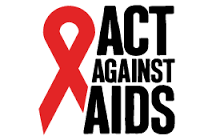Of all the infamous diseases, the one seemingly most feared and warned against across the country is HIV/AIDS. I can remember one of the first health classes I ever had discussing AIDS and its devastating consequences. A major focus on the disease was techniques for prevention, especially because there was no cure. Now, there may be a new insight into a special human make-up that is immune to the deadly disease.
According to The Aids Institute, the disease was discovered in 1983, where it was found that it depletes the human immune system, leaving the host completely vulnerable. Interestingly enough, AIDS does not directly kill the person it infects; rather it eliminates the human’s defense mechanism developed to protect against other deadly diseases.
However, a new study has developed enlightening the world to a group of young children in Africa who are immune to HIV/AIDS. According to CNN, an observational study following African mothers infected with the disease showed that their babies are immune. The article discusses a study done by a professor at the University of Oxford who looked at over 100 kids that were seemingly immune to the disease. After numerous blood tests, the study concluded that their immune systems were operating enough for HIV to claim its stake.
Within the study, a point of emphasis was ethics. It was decided that within the kids chosen to observe that if one of them was discovered to be HIV positive, they had to continue to give them proper treatment. Thus, even if one of the children correlated with the null hypothesis and were not immune to the virus, they must still receive medical treatment. Much like the ethics discussed in class, it is just not right to abandon a kid who has tested positive for the virus solely because he or she did not have the results that the study was hoping to find.
Observing the study discussed in the article, some of its aspects are highly credible yet others are questionable in my eye. As for what I found most impressive, the study was able to conclude a mechanism as to how the biological makeup of these kids prevented themselves from the disease, the mechanism being that the kids had too low of a working immune system for HIV to attack. On the contrary, the small size of the study makes me question the credibility of the study and whether or not it took in to account confounding third variables such as genetic makeup and family health history.
 Overall, there is hope in this small study in that these young kids will never be afflicted with the horrific ramification of HIV/AIDS. Maybe, further examination of the children will offer a lead into a potential cure. The possibilities are endless with this finding, I am hoping that larger and more in-depth studies will lead to more concrete findings.
Overall, there is hope in this small study in that these young kids will never be afflicted with the horrific ramification of HIV/AIDS. Maybe, further examination of the children will offer a lead into a potential cure. The possibilities are endless with this finding, I am hoping that larger and more in-depth studies will lead to more concrete findings.
Image found here
